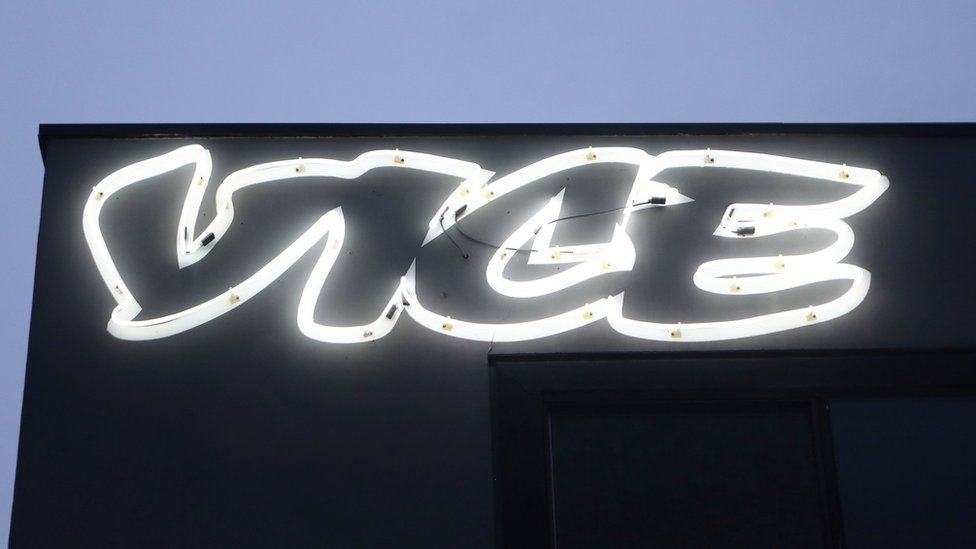
By Mariko Oi
Business reporter
Vice Media plans to cut hundreds of jobs as it stops publishing on Vice.com, according to a memo from chief executive Bruce Dixon.
In May, the firm filed for bankruptcy in the US and was bought by Fortress Investment Group.
Mr Dixon said Vice plans to “partner with established media companies to distribute our digital content”.
Media firms including Channel 4, Los Angeles Times, and Business Insider have also cut jobs this year.
Mr Dixon said “it is no longer cost-effective for us to distribute our digital content the way we have done previously,” in the memo seen by the BBC.
“Regrettably, this means that we will be reducing our workforce, eliminating several hundred positions,” he said.
The company continues to sell the business, according to Mr Dixon who said the announcement will be made in the coming weeks.
Before filing for Chapter 11 bankruptcy protection, a procedure which postpones a US company’s obligations to its creditors, Vice announced previous layoffs by shutting down its flagship TV programme.
Launched in 1994 as a fringe magazine called Voice of Montreal by Shane Smith, Gavin McInnes and Suroosh Alvi, Vice Media operates in more than 30 countries.
The company was valued at $5.7bn (£4.5bn) in 2017 and was once heralded as part of vanguard of companies set to disrupt the traditional media landscape with edgy, youth-focused content spanning print, events, music, online, TV and feature films.
The hope was that Vice would attract millions of younger people through social media platforms such as Facebook and Instagram.
The firm’s production included My Journey Inside the Islamic State, in which a Vice journalist filmed alongside the terror group in Syria. Vice also followed basketball star Dennis Rodman and the Harlem Globetrotters team on a “sports diplomacy” trip to North Korea.
More recent content included documentaries about controversial influencer Andrew Tate and a film about Ukraine’s president, Volodymyr Zelensky, by actor Sean Penn.
However, the company’s revenues have been flat for some years and it has also struggled to turn a profit. Vice’s plans to go public through a merger also failed.








